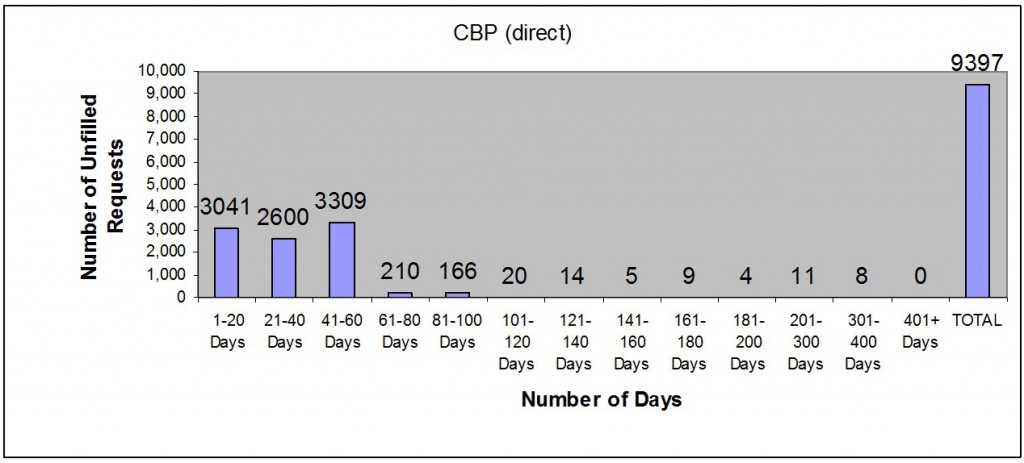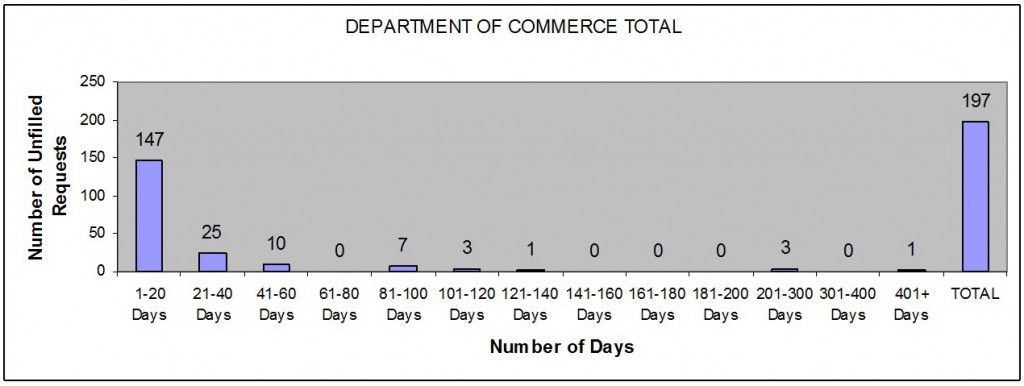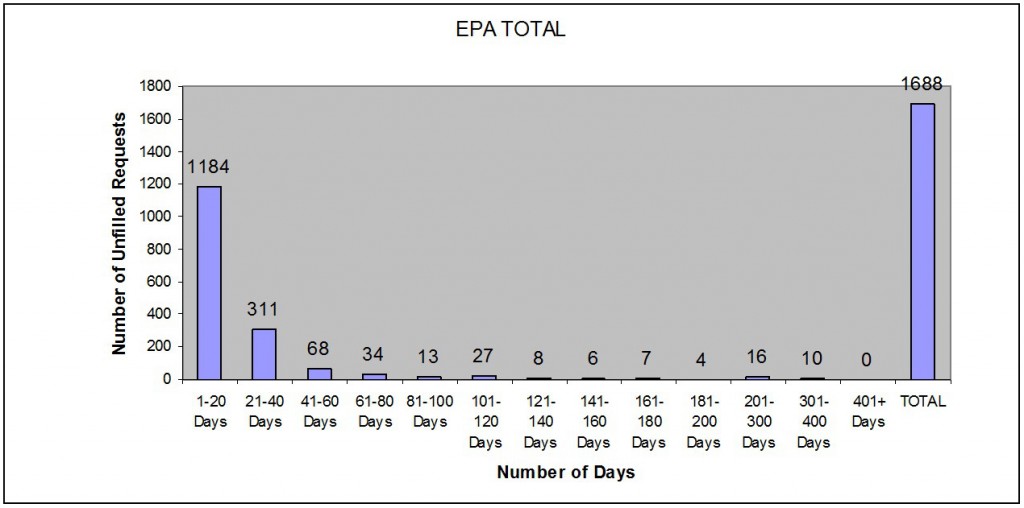On January 18, I submitted a Freedom of Information Act “simple” request to Customs and Border Protection (CBP) with a due date of February 16, 2017. It is now more than 30 days overdue. I specifically asked CBP to provide me disembarkation data by year for a number of cruise ports across the United States. The data are not readily available as evidenced by the fact that major associations representing the cruise lines do not have this data. As I began researching my request, I decided to examine (without any pre-conceived notion and using performance metrics) how CBP and several other agencies were doing in terms of responding to their FOIA requests. For this brief analysis, I selected Environmental Protection Agency (EPA) and the U.S. Department of Commerce (DOC). The three graphs below show the results.
Time Period: January 1, 2017 – March 15, 2017
The results show that in relative magnitude, CBP has many more unfilled requests than either the EPA or the Department of Commerce. CBP has (3,309/9397= .352) more than 35% of unfilled requests that are 41-60 days long. EPA has (68/1,688=.040) more than 4% of unfilled requests and DOC has (10/197= .0508) more than 5% of unfilled requests for the same length of time (i.e., 41-60 days). Another interesting statistic is that the overwhelming majority of CBP requests appear to be filled after 90 days of submission. The same is not true at EPA and DOC. The majority of EPA and DOC requests are fulfilled within 20 days.
FOIA requests made to CBP could easily take up to 90 days to fulfill while similar simple EPA and DOC requests could take no more than 20 days to fulfill. These data, however, say nothing about the complexity of these simple requests. They also say nothing about the amount of time each agency spends on completing each request.
Regardless, I am still waiting for the data I requested from CBP.




